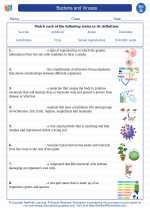Infectious Agents
An infectious agent, also known as a pathogen, is a microorganism that causes disease in its host. These agents can be classified into different categories, including bacteria, viruses, fungi, and parasites. Understanding these infectious agents is crucial for understanding how diseases spread and how they can be controlled and treated.
Bacteria
Bacteria are single-celled microorganisms that can be found in various environments. While many bacteria are harmless or even beneficial, some can cause diseases such as strep throat, tuberculosis, and urinary tract infections. Bacteria can be controlled and treated with antibiotics.
Viruses
Viruses are tiny infectious agents that can only replicate inside the cells of an organism. They cause a wide range of diseases, including the common cold, influenza, HIV/AIDS, and COVID-19. Unlike bacteria, viruses are not affected by antibiotics, but vaccines and antiviral medications can help prevent and treat viral infections.
Fungi
Fungi are a group of microorganisms that include yeasts, molds, and mushrooms. While some fungi are used in food production and medicine, others can cause infections such as athlete's foot, ringworm, and fungal pneumonia. Antifungal medications are used to treat fungal infections.
Parasites
Parasites are organisms that live on or inside a host organism and benefit at the host's expense. These can include protozoa, helminths (worms), and ectoparasites such as ticks and lice. Parasitic infections can cause diseases like malaria, giardiasis, and tapeworm infestations. Treatment for parasitic infections varies depending on the specific parasite involved.
Study Guide
- Define infectious agents and explain their role in causing disease.
- List and describe the categories of infectious agents, including examples of diseases caused by each category.
- Discuss the methods of controlling and treating infections caused by bacteria, viruses, fungi, and parasites.
- Compare and contrast the characteristics of bacteria, viruses, fungi, and parasites.
- Research a specific infectious agent and create a presentation on its characteristics, mode of transmission, and methods of prevention and treatment.
Understanding infectious agents is essential for understanding diseases and how they can be prevented and treated. By studying these agents, we can work towards better controlling and managing infectious diseases in the future.
.◂Science Worksheets and Study Guides Seventh Grade. Bacteria and Viruses
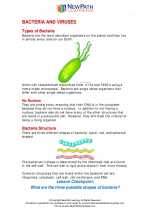
 Activity Lesson
Activity Lesson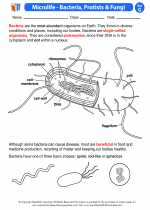
 Worksheet/Answer key
Worksheet/Answer key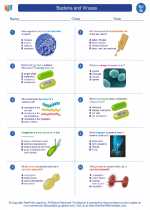
 Worksheet/Answer key
Worksheet/Answer key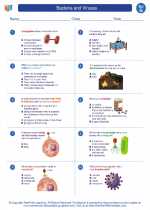
 Worksheet/Answer key
Worksheet/Answer key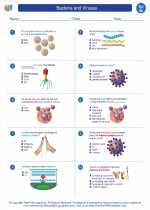
 Worksheet/Answer key
Worksheet/Answer key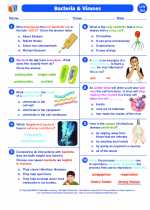
 Vocabulary/Answer key
Vocabulary/Answer key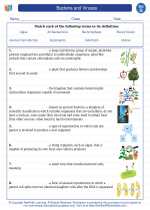
 Vocabulary/Answer key
Vocabulary/Answer key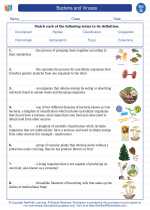
 Vocabulary/Answer key
Vocabulary/Answer key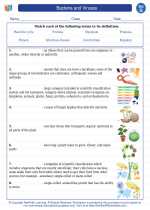
 Vocabulary/Answer key
Vocabulary/Answer key